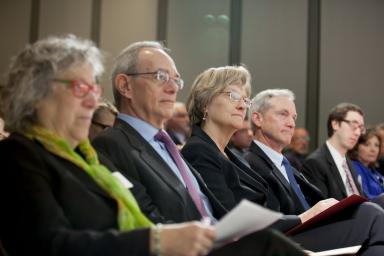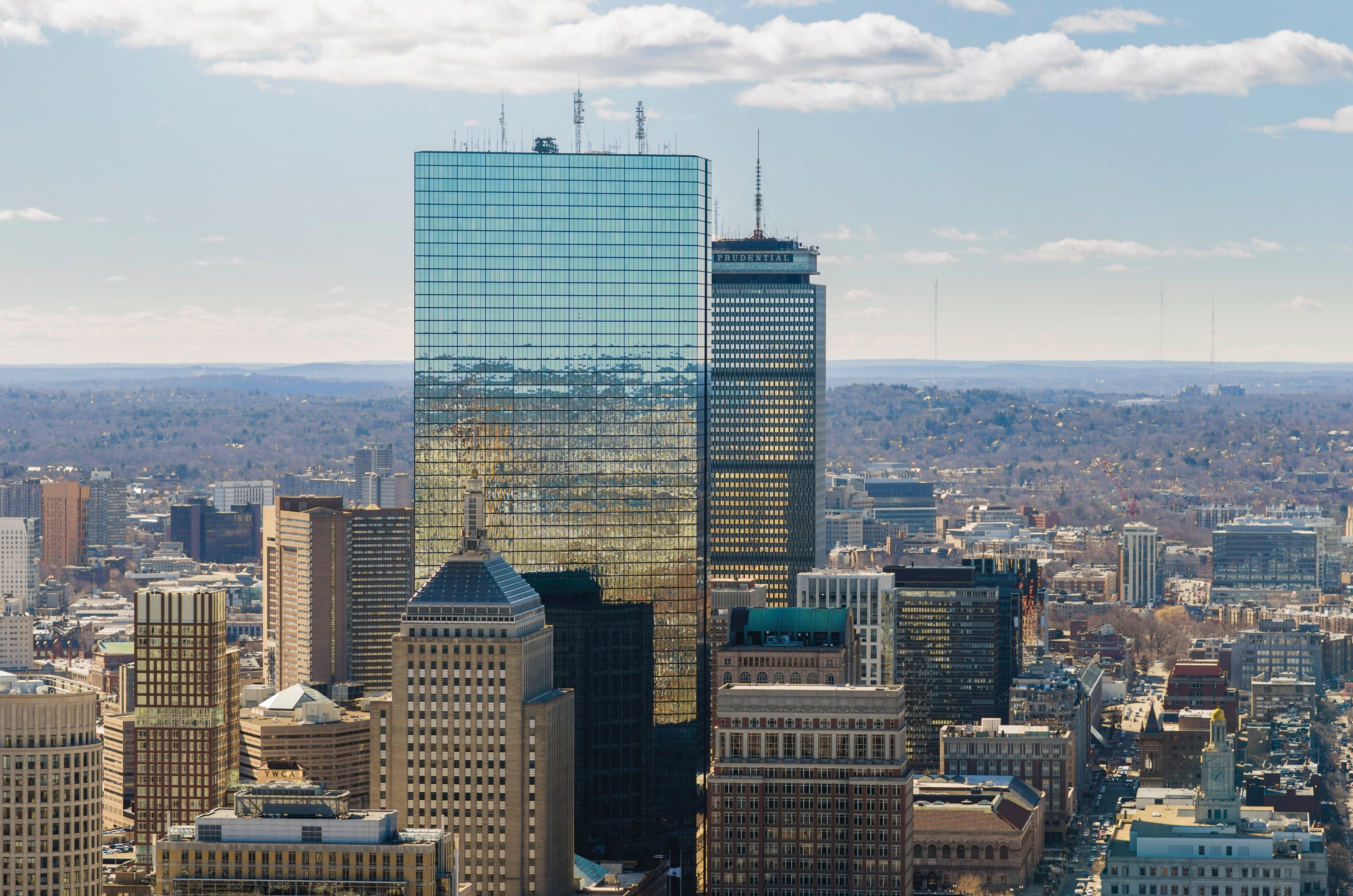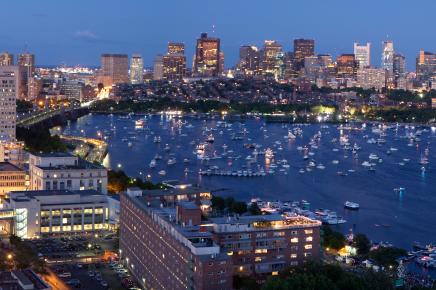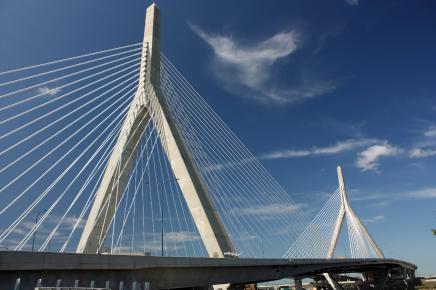As part of its climate action strategy, MIT seeks to advance the development of renewable energy systems off-site that contribute to the campus’ climate action goals, as well as drive research, education, and collaboration.

The challenges of sustainability – from bike infrastructure to climate resiliency – do not end at our campus’ boundaries. Meanwhile, the intellectual pool of problem solvers in the Boston and Cambridge region is rich and diverse. As an urban campus that stretches along the banks of the Charles, we seek to leverage MIT’s unique potential to serve as a partner and as a physical test bed for urban solutions to climate change.
The cities of Cambridge and Boston have a long history of coming together with partners from higher education, business, industry, and the nonprofit community to advance leading-edge climate and sustainability initiatives like the Cambridge Compact for a Sustainable Future, the Net Zero Action Plan, the Kendall Square Ecodistrict, the Boston Green Ribbon Commission, as well as a broad range of transportation, waste management, and climate vulnerability efforts. Find out more about our collective efforts below.
Working together on groups and committees
Members of the MITOS team serve on a number of groups and committees in partnership with the Cities of Cambridge and Boston, including:


MIT serves on the City of Cambridge Climate Protection Action Committee (CPAC) as a key avenue for ensuring continued alignment of campus climate activities with City-wide initiatives. The Committee membership is appointed by the City Manager and is composed of community members who take an active interest in climate change issues in Cambridge and who live or work in Cambridge. CPAC is currently serving as an advisory body for the City’s implementation of the Net Zero Action Plan (2015), which aims to eliminate greenhouse gas emissions from the city’s built environment.
MIT’s participation through CPAC is also fostering collaboration conversations with MIT’s community and institutional neighbors.

The Cambridge Compact for a Sustainable Future – through the collaboration of its signatories and community expertise and application of research, innovation, entrepreneurship, and social enterprise – strives to create a more healthy, livable and sustainable Cambridge community by addressing global environmental challenges together.
The City of Cambridge, Harvard University, and Massachusetts Institute of Technology founded the Cambridge Compact for a Sustainable Future (Cambridge Compact) in 2013. They viewed the Compact as a city-wide partnership and encouraged non-profit and business leaders in sustainability to join. Now, the Compact has 20 members comprising some of the largest building owners and operators in Cambridge along with several strategic non-profit organizations.

The Higher Education Working Group of the Boston Green Ribbon Commission represents the unique constituency of large research and residential campuses in Boston and neighboring cities including Cambridge. Colleges and universities have a significant footprint in the greater Boston area, as well as a particular set of sustainability challenges, including large-scale energy procurement and management, and resiliency planning for diverse communities of tens of thousands of students, faculty, and staff. The intellectual capacity of the higher education sector provides a source of expertise, motivation, and collaboration for the other members of the Green Ribbon Commission, City of Boston and its Climate Action Plan. Through the HEWG, learnings are diffused to surrounding cities, towns, and institutions.

In December 2013, the City of Cambridge created the “Getting to Net Zero Task Force” charged with advancing the goal of putting Cambridge on the trajectory towards becoming a “net zero community,” with focus on carbon emissions from building operations. This includes reducing energy use intensity of buildings and taking advantage of opportunities to harvest energy from renewable sources.
MIT’s Director of Sustainability was a member of the Regulation and Planning Approaches Working Group and contributed to the production of the final report. In June 2015, the City Council unanimously voted to adopt the Net Zero 25-Year Action Plan.



